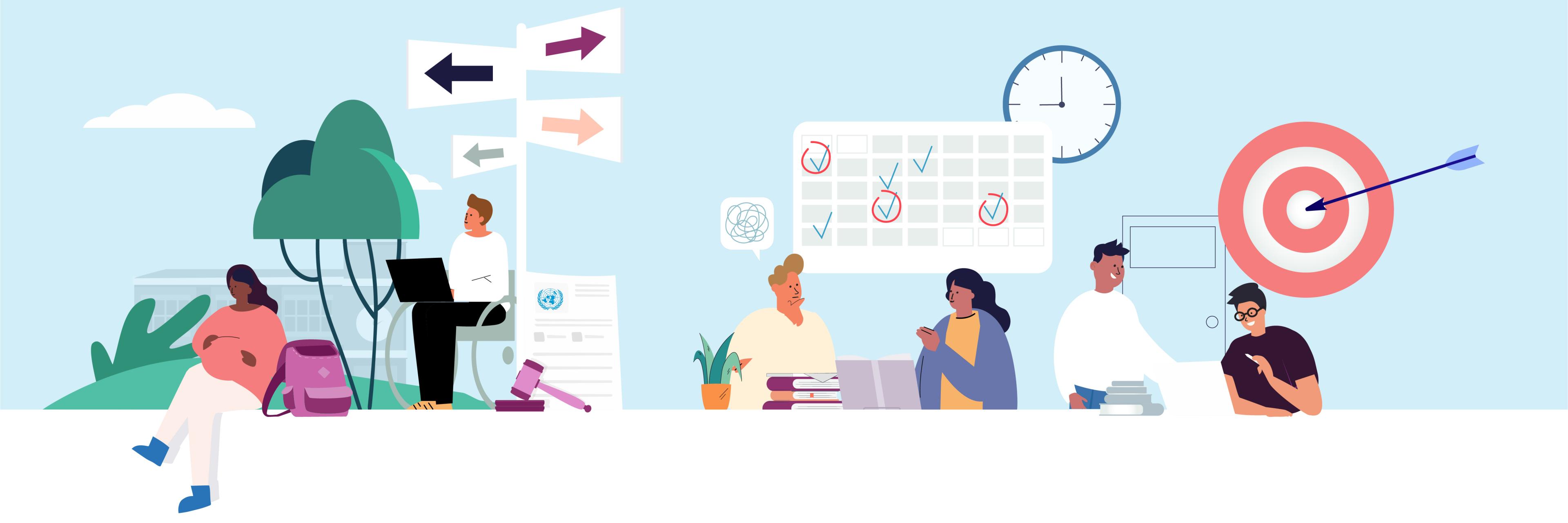
Characteristics of intestinal disorders
When you have Crohn's disease, colitis, IBS or another intestinal disease, you may experience severe abdominal pain, constant nausea, persistent fatigue or other unpleasant symptoms that seem to be connected to your digestion. As a result, maybe you are unable to attend in-person lessons or take part in an internship.
This is what I deal with
As a student with chronic bowel symptoms, you may find yourself facing a variety of obstacles:
- Lack of energy. You often experience a lowered energy level as a result of your chronic illness. This may negatively impact your ability to keep up with course work, attend lectures and take exams.
- Problems with the attendance requirement. Because of the symptoms you experience, you are not always able to attend class. You may also be absent due to doctor's appointments or medical treatments or because you are in hospital.
- Problems with tests/exams or in class. You are not always able to study for your tests or exams. Maybe you need more time to learn the material, or you would benefit from spacing out the exams and other assignments over a longer period.
- Problems with an internship or a job. It is possible that, because of your disease, you are unable to do an internship or can only take part to a limited extent. Effective communication and solid agreements are important to make this process go smoothly.
Even though these obstacles may cause difficulties, you can rest assured that more than enough tools and solutions are available that can help you successfully complete your degree programme. In the preceding section, click on the obstacle you are facing with which you could use some help. You can then read a lot more about that topic and find additional tips and tools. If your specific obstacle is not mentioned above, please refer to the comprehensive list of obstacles.
This is what I might need
Support and facilities for students with an intestinal disorder
A variety of adjustments and/or facilities are available that may be helpful to you during your degree programme at a research university or university of applied sciences. While there are national schemes, your educational institution will offer its own forms of additional support, too.
- Adjusted class schedule. Discuss possible adjustments with your study adviser or student counsellor. You may be able to space out the required courses over a longer period of time, or the attendance requirement for some courses could be relaxed. If possible, you could watch the lectures by video link or ask that they be recorded for you.
- Testing facilities. You may find it helpful to have extra time to take your tests or exams, to use a laptop or to space them out over a longer period of time. You can also discuss the possibility of alternative forms of assessment, such as doing a take-home test rather than a written test on site.
- Extra time to complete your studies. You should meet with your study adviser to discuss your options. If you incur a study delay due to special circumstances, you can also apply for a performance grant from the Education Executive Agency (DUO) (submitted via the student counsellor). The grant extends the period for which you receive student finance. For more about the grant, see the section on ‘Financial schemes’.
- Financial schemes. A number of financial schemes are available for students who incur a study delay or are unable to have a part-time job due to their disability. Click the link to see which schemes you might be eligible for.
Have a look at the other facilities that might be helpful for you, too.
Tips
Do not wait to ask for help
Every student is different, and every individual needs a different type of help. It is important to explore the options and find what works for you. Do not be afraid to ask for help at the first signs of trouble. Asking for help is actually a sign of strength, because it lets others know how much you want to succeed in your degree programme. Talk to a study adviser for your programme and ask them about the possibilities available to you. It is a good idea to take a moment first to write down what you need and what kind of support you think would be helpful to you. You should immediately seek help if you run into obstacles to your education because of your special needs. Together, you can explore whether this might affect rules such as the binding study advice (BSA) or the attendance requirement and how they apply to you.
If you encounter obstacles in your education, do not wait to report them
If you run into obstacles as a result of your special needs, you can look at how this will affect rules such as the BSA or the attendance requirement together.
Organisations
Through the tool 'Hulpwijzer'[Help Guide], you can find organisations that have expertise on your support needs. Check out the possibilities.